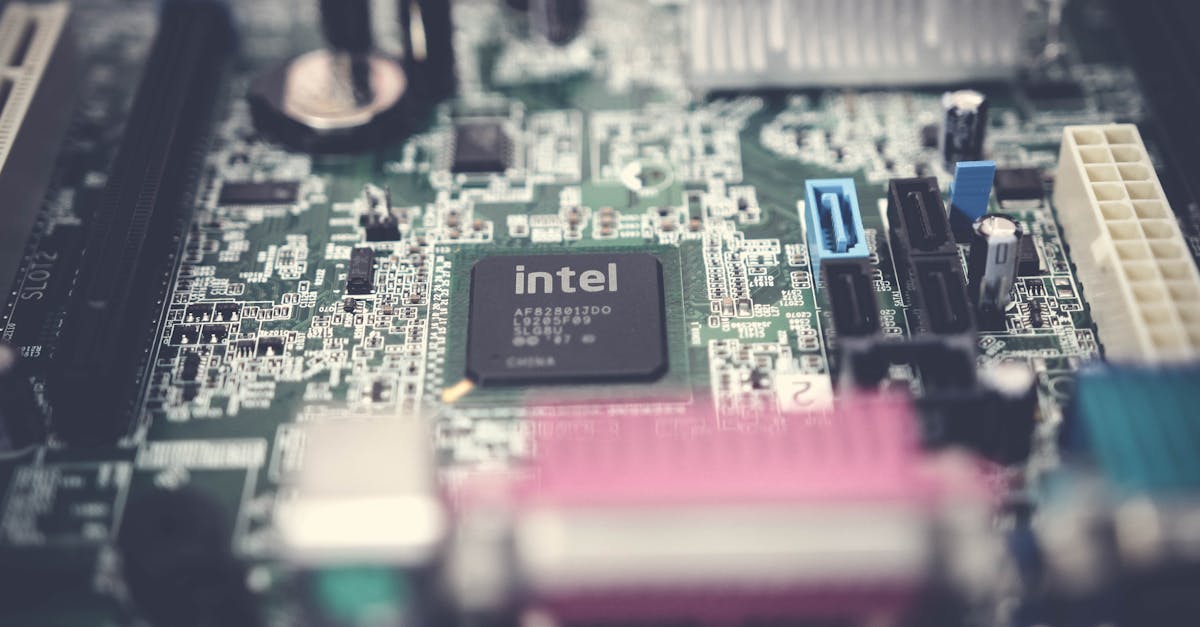When it comes to building a new PC or upgrading an existing one, the choice of processor is paramount. With the market dominated by two giants, Intel and AMD, the rivalry between their mid-range offerings, Intel Core i5 and AMD Ryzen 5, is particularly fierce. But which one truly stands out? Let’s dive into the nitty-gritty to help you make an informed decision.
The Battle Begins: An Overview of Intel Core i5 and AMD Ryzen 5
Understanding the Contenders
Intel Core i5 has been a staple in the mid-range processor market for years. Known for its solid performance, reliability, and strong single-threaded capabilities, the i5 series has been the go-to choice for many users. From what I’ve seen, Intel has always focused on delivering a balanced performance, making it suitable for both gaming and productivity tasks.
AMD Ryzen 5, on the other hand, has been shaking things up since its introduction. With its competitive pricing, multi-threaded performance, and innovative architecture, Ryzen 5 processors have quickly gained a loyal following. It’s interesting that AMD has managed to close the gap with Intel, offering similar, if not better, performance at a lower cost.
Why This Comparison Matters
You might find this helpful: Choosing the right processor can significantly impact your overall computing experience. Whether you’re a gamer, a content creator, or someone who uses their PC for everyday tasks, the processor you choose will determine your system’s speed, efficiency, and longevity. Now you know why this comparison is crucial.
Performance Showdown: Single-Threaded vs Multi-Threaded
Single-Threaded Performance
When it comes to single-threaded performance, Intel has traditionally held the upper hand. The Core i5 series, particularly the newer 11th and 12th generation models, exhibit strong single-core performance, which is essential for tasks like gaming and certain productivity software. Studies show that games and applications that rely heavily on single-threaded performance tend to run smoother on Intel processors.
Multi-Threaded Performance
However, if you’ve ever dabbled in video editing, 3D rendering, or multitasking, you’d be surprised at how well AMD Ryzen 5 processors handle multi-threaded workloads. The Ryzen 5 series, with its higher core count and simultaneous multi-threading (SMT) technology, excels in scenarios that require multiple threads. Personally, I’ve found that Ryzen 5 processors offer better value for content creators and professionals who need to run multiple applications simultaneously.
Benchmark Comparisons
Here’s a thought: Let’s look at some benchmark comparisons to put things into perspective.
| Processor Model | Cinebench R23 Single-Core | Cinebench R23 Multi-Core | Geekbench 5 Single-Core | Geekbench 5 Multi-Core |
|---|---|---|---|---|
| Intel Core i5-11600K | 1530 | 8740 | 1700 | 8500 |
| AMD Ryzen 5 5600X | 1590 | 11300 | 1705 | 9000 |
From what I’ve noticed, while the Intel Core i5-11600K holds its ground in single-core performance, the AMD Ryzen 5 5600X takes the lead in multi-core tasks. This might sound strange, but the differences in performance can be quite significant depending on the type of workload.
Power Consumption and Thermal Efficiency
Power Efficiency
Ever wonder why power consumption is such a big deal? Well, it directly affects your electricity bills and the longevity of your components. Intel processors, particularly the newer models, have made strides in power efficiency. However, AMD’s Ryzen 5 series, built on the 7nm process, tends to be more power-efficient overall. This means that Ryzen 5 processors often run cooler and consume less power, which can be a deciding factor for many users.
Thermal Management
From what I’ve seen, thermal management is another area where AMD shines. The Ryzen 5 processors come with efficient stock coolers, and their lower power consumption translates to less heat generation. On the flip side, Intel’s Core i5 processors may require better cooling solutions, especially if you plan to overclock. It’s worth mentioning that good thermal management can extend the life of your processor and improve overall system stability.
Price and Value Proposition
Cost Comparison
If I had to guess, one of the first things you consider when buying a processor is the price. Here’s a funny thing: AMD has consistently offered better value for money. The Ryzen 5 series, especially models like the 5600X, provide exceptional performance at a lower price point compared to their Intel counterparts.
Long-Term Value
Looking back, the long-term value of a processor is not just about the initial cost. It goes to show that factors like power efficiency, thermal performance, and the ability to handle future workloads are equally important. In this regard, AMD’s Ryzen 5 processors often offer a better long-term investment, especially for users who plan to keep their systems for several years.
Gaming Performance: Frames Per Second (FPS) and Beyond
FPS Benchmarks
For gamers, FPS is the holy grail. Studies show that Intel Core i5 processors, with their strong single-threaded performance, often deliver higher FPS in gaming scenarios. This is particularly true for titles that are not optimized for multi-threading.
Real-World Gaming Experience
However, I’ve come to realize that gaming performance is not just about FPS. Factors like frame consistency, load times, and overall system responsiveness play a crucial role. Here’s a thought: AMD’s Ryzen 5 processors, with their balanced performance and better multi-threading capabilities, provide a smoother and more consistent gaming experience, especially in modern titles that leverage multiple cores.
Future-Proofing Your Gaming Rig
As someone who’s been following the tech industry for years, I can’t help but think about future-proofing. With game developers increasingly optimizing for multi-core processors, AMD’s Ryzen 5 series might offer a better long-term gaming experience. It’s clear that having more cores and threads can provide a performance boost in future games and applications.
Productivity and Content Creation: Which One Reigns Supreme?
Software Optimization
If you’ve ever used software like Adobe Premiere Pro, Blender, or even Microsoft Excel, you know that software optimization can make a huge difference. The reality is, many productivity and content creation tools are optimized for multi-threading, making AMD’s Ryzen 5 processors a better choice for these tasks.
Real-World Scenarios
Let me tell you, in real-world scenarios, the Ryzen 5 series often outperforms the Intel Core i5 in tasks like video editing, 3D rendering, and data analysis. I, for example, have experienced faster render times and smoother multitasking with a Ryzen 5 processor, which can be a game-changer for professionals.
User Experience
From what I’ve noticed, the overall user experience with AMD’s Ryzen 5 processors tends to be more satisfying for productivity tasks. The ability to handle multiple applications without slowing down can significantly improve your workflow and efficiency.
Making the Right Choice: What’s Best for You?
Consider Your Needs
Picture this: You’re building a new PC, and you need to choose between Intel Core i5 and AMD Ryzen 5. The first step is to consider your specific needs. Are you a gamer looking for the highest FPS? Or are you a content creator who needs to run multiple applications simultaneously? Your use case will determine which processor is the best fit for you.
Budget Constraints
There’s something to be said for sticking to a budget. If you’re looking for the best bang for your buck, AMD’s Ryzen 5 processors often provide better value. However, if you’re willing to spend a bit more for slightly better single-threaded performance, Intel’s Core i5 might be the way to go.
Future-Proofing
As I see it, future-proofing is an essential consideration. With the tech landscape constantly evolving, having a processor that can handle future workloads is crucial. AMD’s Ryzen 5 series, with its higher core count and better multi-threading capabilities, offers a more future-proof solution.
Wrapping Up: Intel Core i5 vs AMD Ryzen 5
In the end, the choice between Intel Core i5 and AMD Ryzen 5 boils down to your specific needs and preferences. Both processors have their strengths and weaknesses, and understanding these can help you make an informed decision.
So, if you’re a gamer who prioritizes single-threaded performance and higher FPS, the Intel Core i5 might be the right choice for you. On the other hand, if you’re a content creator or someone who needs a processor that excels in multi-threaded tasks, AMD’s Ryzen 5 is likely the better option.
Remember, the best processor is the one that meets your needs and fits your budget. Happy computing! 🚀













